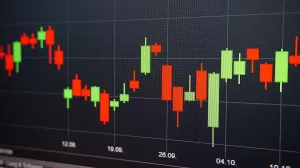How the Netherlands Influences the Global Steel Market: A Comprehensive Analysis
3 min read
The Netherlands, while not the largest producer of steel, plays a crucial role in the global steel market. With its strategic location, advanced technology, and commitment to sustainability, the Netherlands has a significant impact on steel trade, innovation, and environmental practices. This article delves into the various ways the Netherlands influences the global steel market, from its robust port infrastructure to its cutting-edge steel production technologies.
1. Strategic Location and Port Infrastructure
a. Gateway to Europe:
- The Netherlands is home to the Port of Rotterdam, the largest port in Europe and one of the busiest in the world. This port serves as a critical gateway for steel and raw materials entering and leaving Europe, making the Netherlands a pivotal hub in the global steel supply chain.
b. Efficient Logistics:
- The Netherlands boasts an efficient logistics network, including extensive rail and road systems. This infrastructure facilitates the swift and cost-effective transport of steel products across Europe and beyond.
2. Advanced Steel Production Technology
a. Innovative Steelmaking:
- Dutch steel producers, such as Tata Steel IJmuiden, are known for their innovative approaches to steelmaking. They employ advanced technologies like direct reduced iron (DRI) and electric arc furnaces (EAF), which are more energy-efficient and environmentally friendly compared to traditional blast furnaces.
b. Research and Development:
- The Netherlands invests heavily in research and development (R&D) to improve steel production processes. Collaborations between universities, research institutes, and steel companies lead to innovations that enhance productivity and reduce environmental impact.
3. Commitment to Sustainability
a. Green Steel Initiatives:
- The Netherlands is at the forefront of the green steel movement, aiming to reduce carbon emissions and transition to sustainable steel production. Initiatives like the HIsarna project, which aims to produce steel with significantly lower CO2 emissions, showcase the country’s commitment to environmental sustainability.
b. Circular Economy:
- Dutch steel producers are pioneers in promoting a circular economy, where steel is recycled and reused, minimizing waste and conserving resources. This approach not only supports sustainability but also enhances the competitiveness of Dutch steel in the global market.
4. Trade and Economic Influence
a. Export and Import Dynamics:
- The Netherlands imports raw materials like iron ore and coal, which are essential for steel production, and exports finished steel products. This trade dynamic strengthens the Netherlands’ position as a key player in the global steel market.
b. Economic Stability:
- The economic stability of the Netherlands provides a favorable environment for steel industry investments. Stable policies, robust financial systems, and a skilled workforce attract global steel companies to establish operations in the country.
5. Challenges and Future Prospects
a. Environmental Regulations:
- Stricter environmental regulations in the Netherlands pose challenges for the steel industry, requiring continuous innovation and investment in green technologies. Compliance with these regulations is crucial for the industry’s future growth.
b. Global Competition:
- The Dutch steel industry faces competition from emerging steel producers in Asia and other regions. Maintaining a competitive edge through innovation and sustainability is essential for the Netherlands to retain its influence in the global market.
Conclusion
The Netherlands’ impact on the global steel market is multifaceted, encompassing strategic logistics, advanced technology, and a strong commitment to sustainability. By leveraging its strategic location, innovative steelmaking processes, and dedication to environmental stewardship, the Netherlands plays a pivotal role in shaping the future of the global steel industry. Understanding these influences highlights the importance of the Netherlands as a key player in the worldwide steel market.



